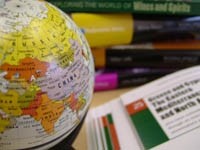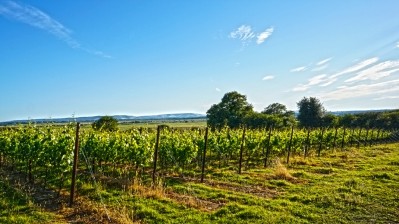Teaching the world about wine: Wine & Spirit Education Trust wins Queen’s Award as Chinese market grows

The UK-headquartered provider of training and qualifications has been recognised with The Queen’s Award for Enterprise in International Trade, in recognition of its “continuous and cumulative overseas export earnings growth of 154% over six years.”
Originally founded to cater for UK trade, the trust now has China as its largest overseas market, with students seeing education as the way to succeed in business.
Other large markets for WSET include well-established wine producers such as France and Australia, with future growth expected from Brazil and Asia.
WSET provides training for the wine and spirits industry, and has seen candidate numbers quadruple in the last decade.
In 2002, a third of WSET’s students were international (3,000 students). Today, the organisation has 42,000 international students, making up more than three quarters of its total.
Thirst for education worldwide
WSET was founded to offer courses (open to both industry professionals and amateurs) for the UK trade in 1969. Harris said its international market launched ‘almost by accident’ in the 1990s, when organisations in Canada, France and Japan approached them.
In the case of France – a country with plenty of its own wine expertise – one attraction was that could students learn relevant wine terminology in English.
Ian Harris, chief executive, WSET, told BeverageDaily.com courses are now taught in 18 languages across 62 countries.
“I’ve travelled a fair bit and it struck me that there was a real thirst for education around the world,” said Harris. “We put together an international development team and we started to proactively search for international markets where wine education would be required and in demand.
“As the Asian wine boom started in early 2000s, we really started to make inroads in Asia.”
The top markets for WSET (in order) are the UK, Mainland China, Hong Kong, US, and Canada. The organisation also sees a lot of interest from France, Australia, Japan, South Korea, and Scandinavia. It has recently opened a centre in Lebanon.
“People want a qualification to cover the global syllabus,” said Harris. “You can go to schools in a particular country and learn about the wines of that country, but we’re the biggest organisation teaching a global syllabus.
“China is a fascinating market, it has a real thirst for knowledge. As the economy is booming, they believe education is the way forward, both personally, and for business.”
Future markets
But what will the market look like for WSET in ten years’ time?
“I think those five are still going to be very important,” said Harris. “The UK – it’s a massive country with 60m people and a big hospitality industry.
“I expect Brazil to overtake Canada – it has a big wine market, they produce a lot of wine and are very active. Interest is greater and greater.
“Other countries in Asia will get close too.”
Harris will attend a reception at Buckingham Palace on July 14 alongside other winners of the Queen’s Awards.
Impartial training on worldwide wines
Harris said the UK boasts an impartial position in the wine and spirits world. With historically low domestic production, it has always been a large importer of wine. As a result, exposure to myriad styles and grape varieties has given the British an overview of markets across the globe.
“The fact we’re British shows we’re not trying to promote any particular country. We have no commercial axe to grind,” said Harris.
The syllabus and specification of each course is the same worldwide, and Harris believes the qualifications are recognised as an industry standard. However, local centres are encouraged to add in relevant knowledge – such as country specific products - to enrich students’ skills.
“Local wines won’t be examined, but we encourage all our centres to add a module or unit on their own area of interest. For example, companies run our course, and might run a module on their own brands.”












